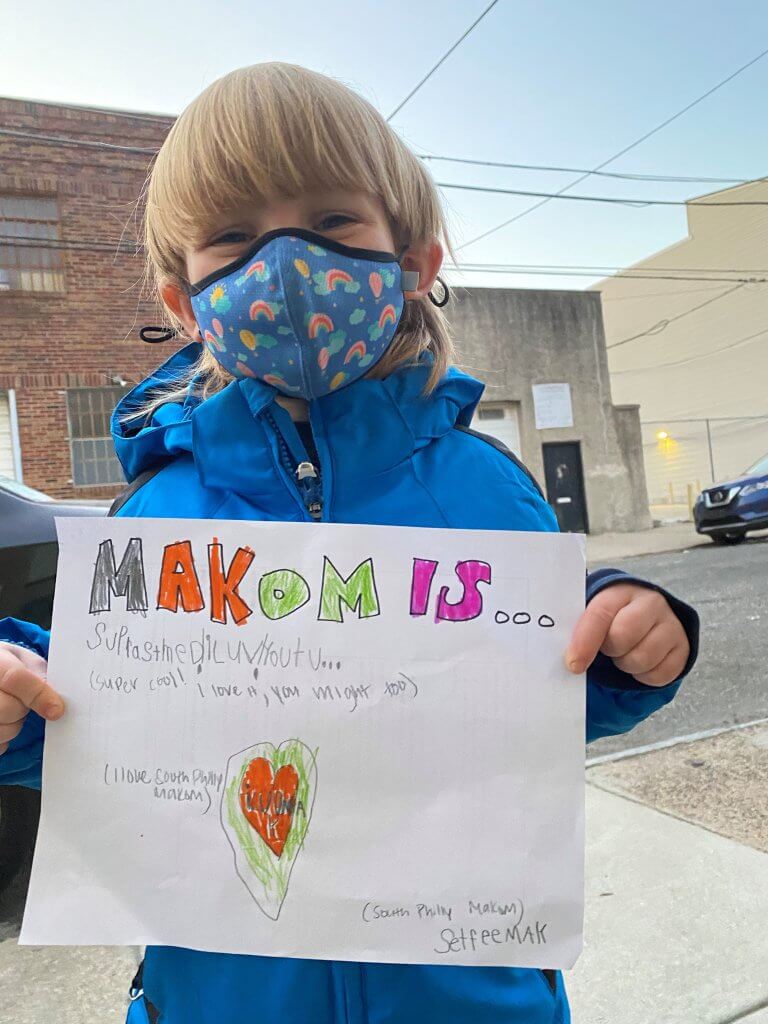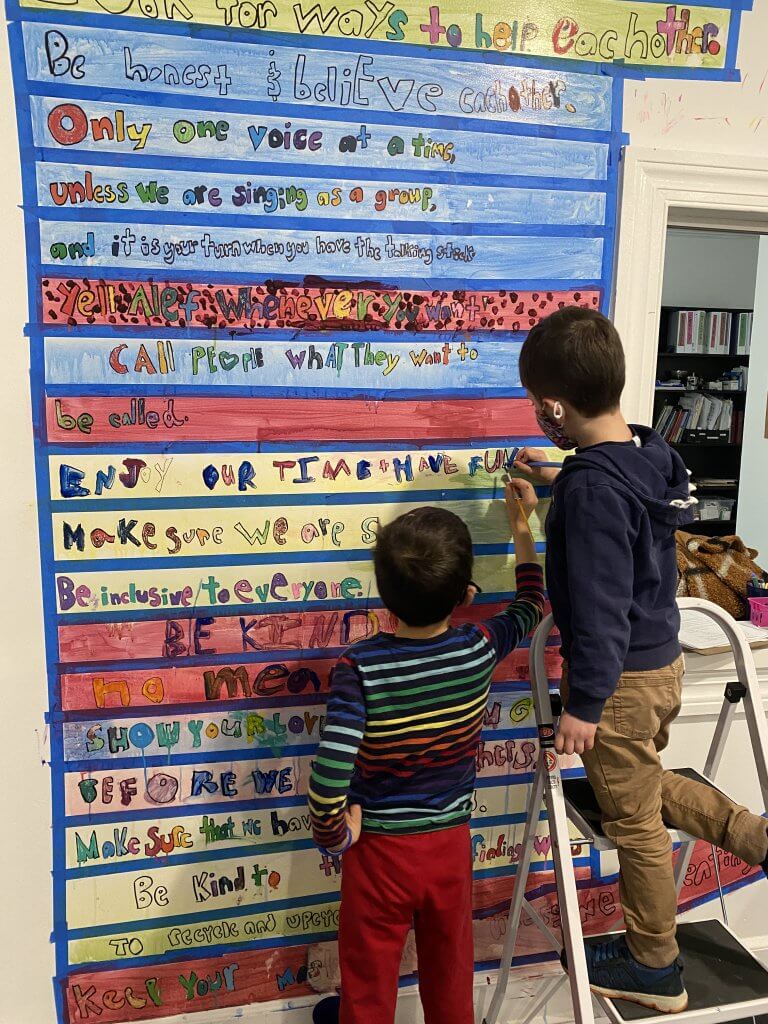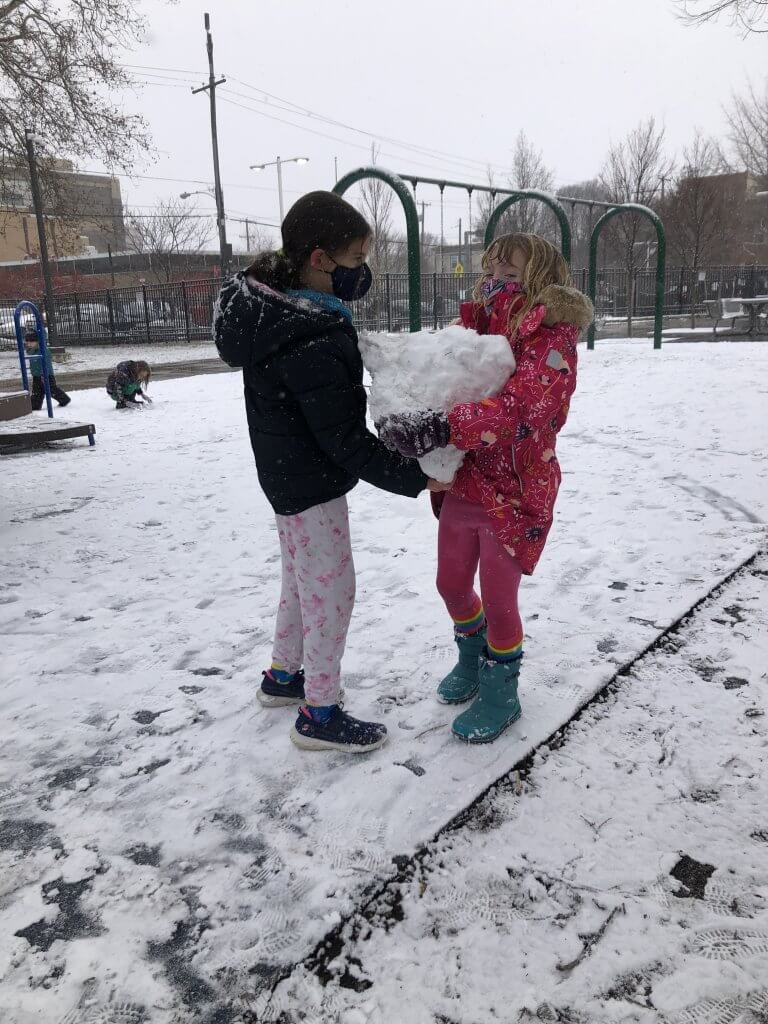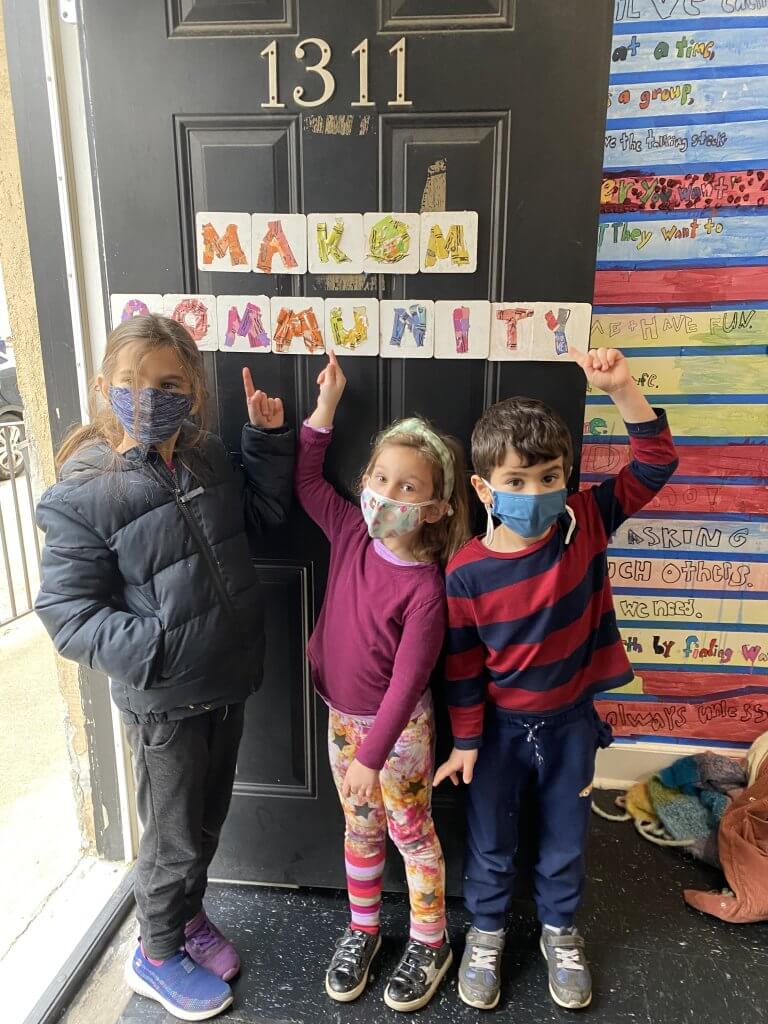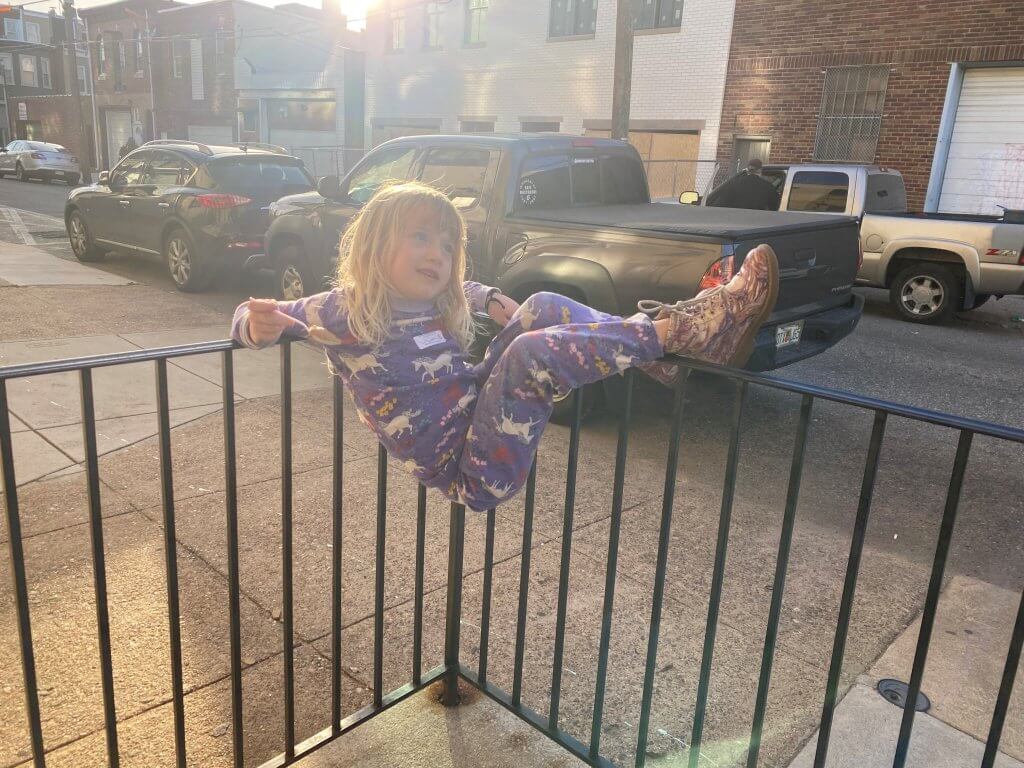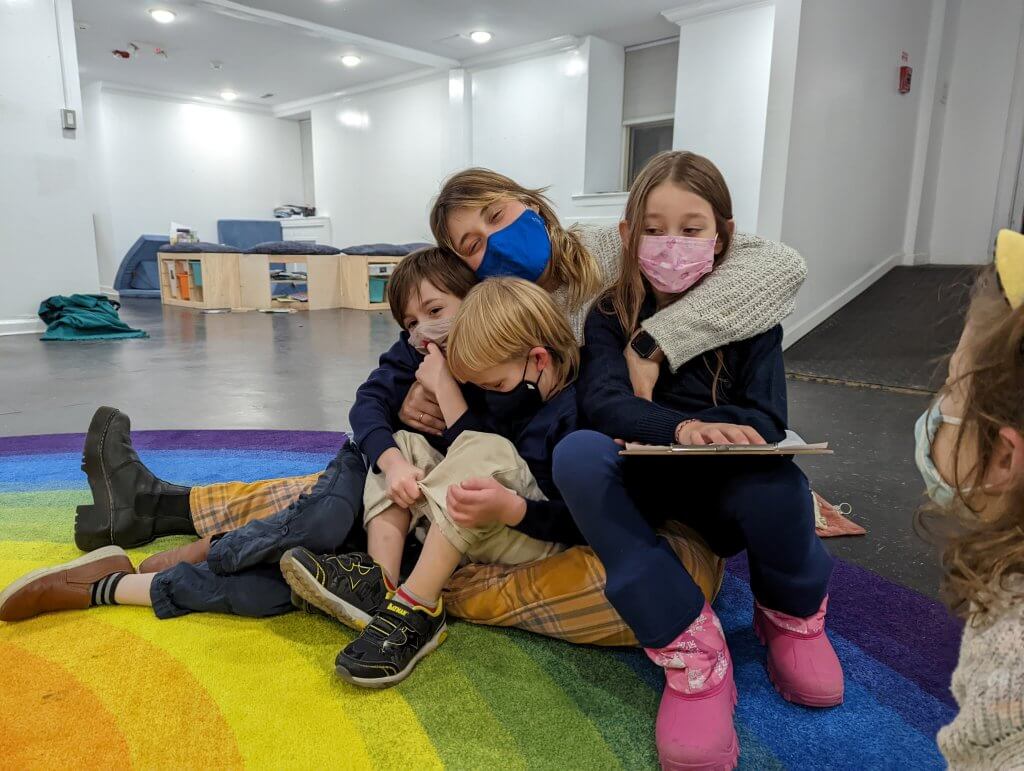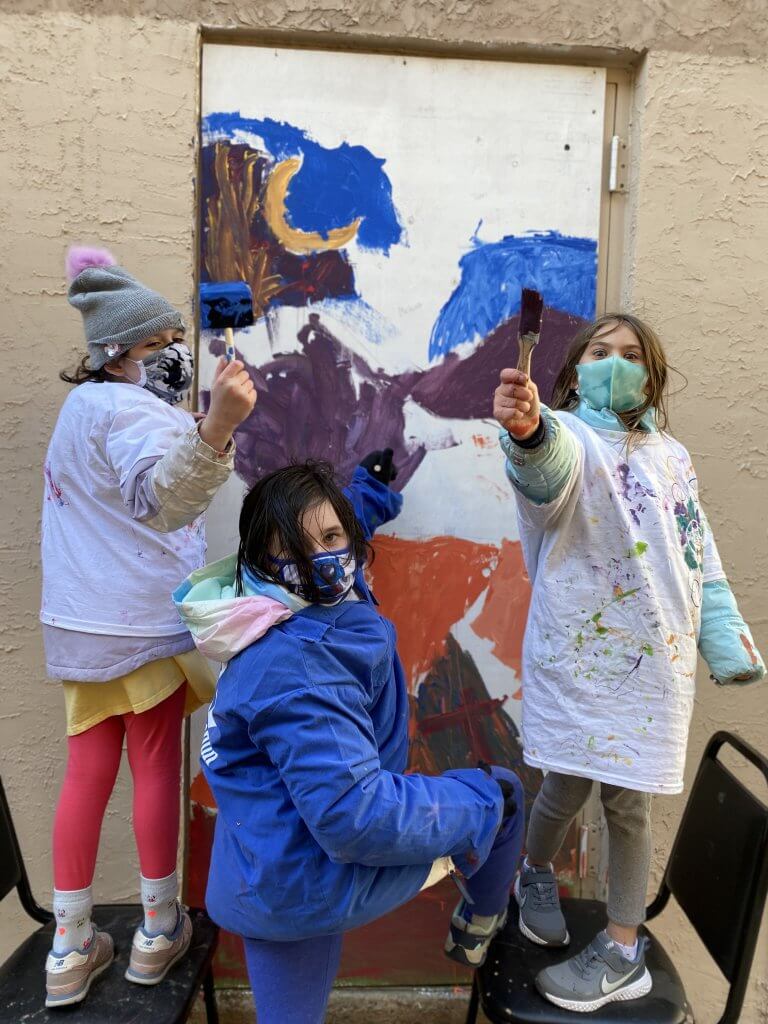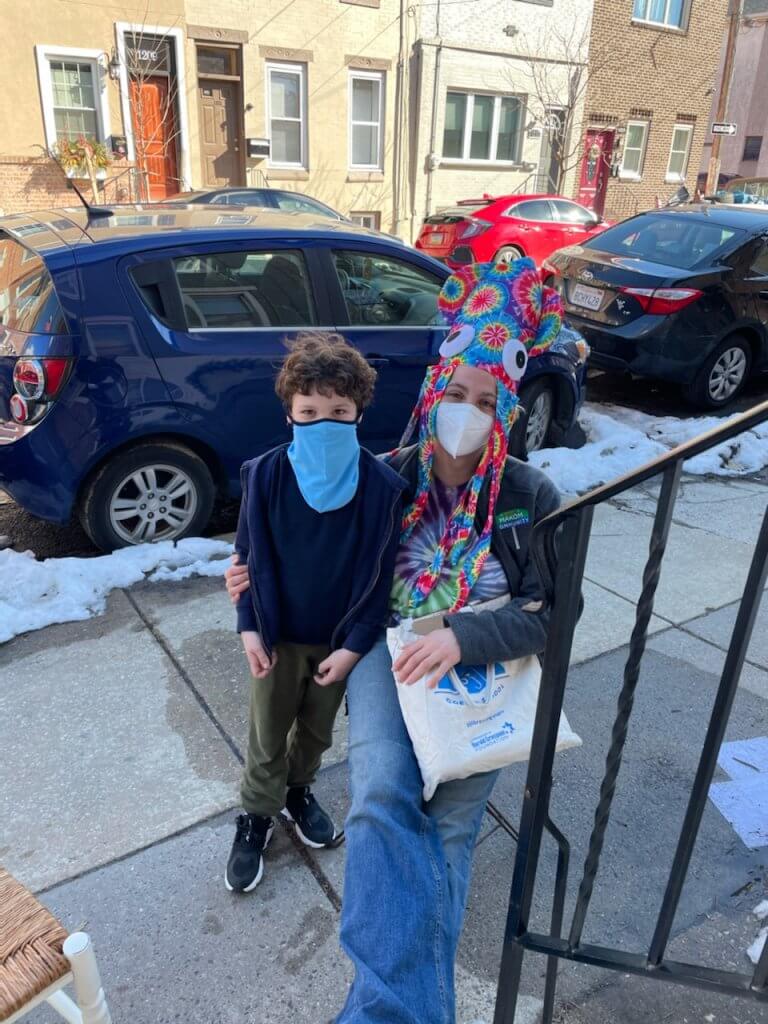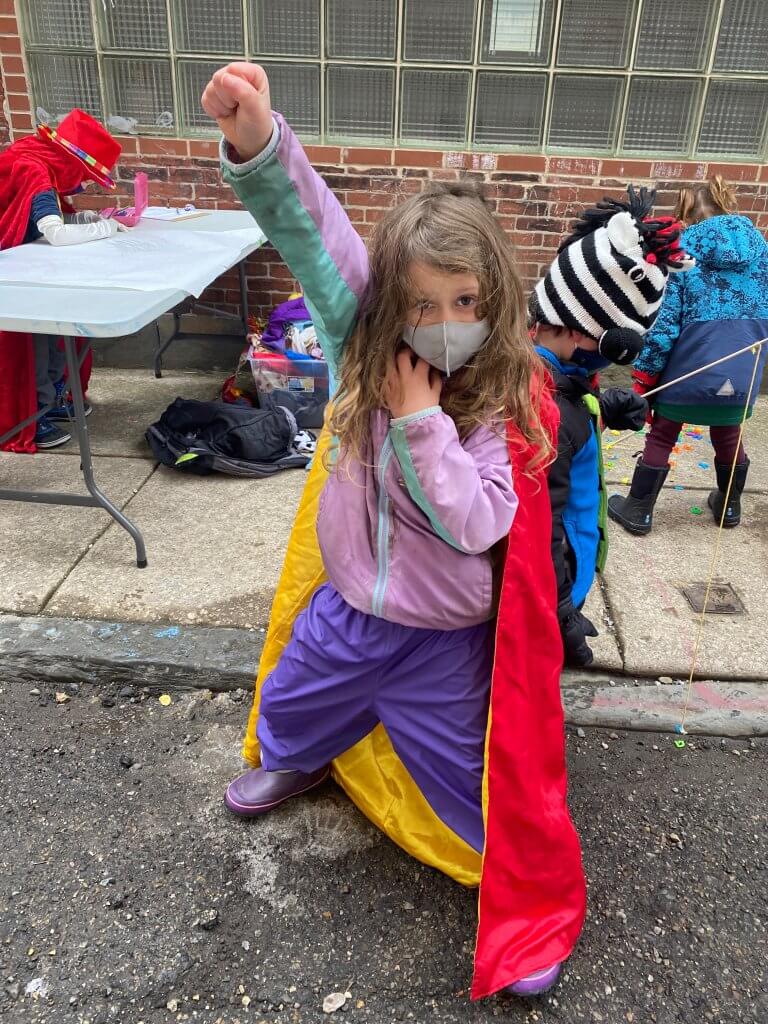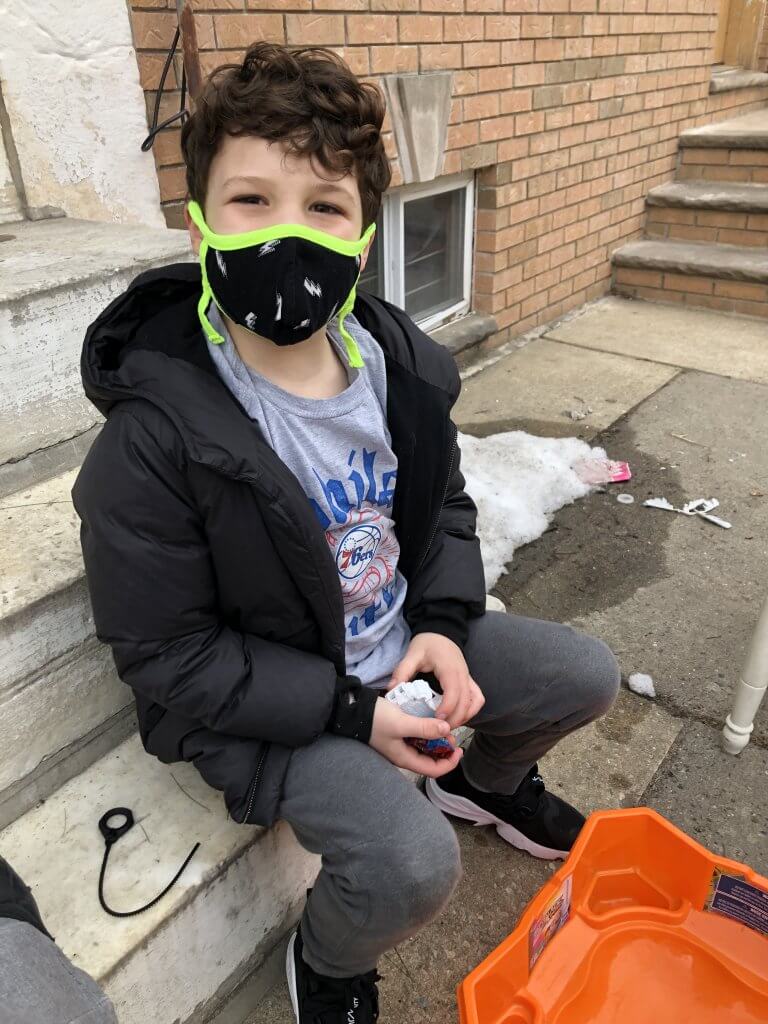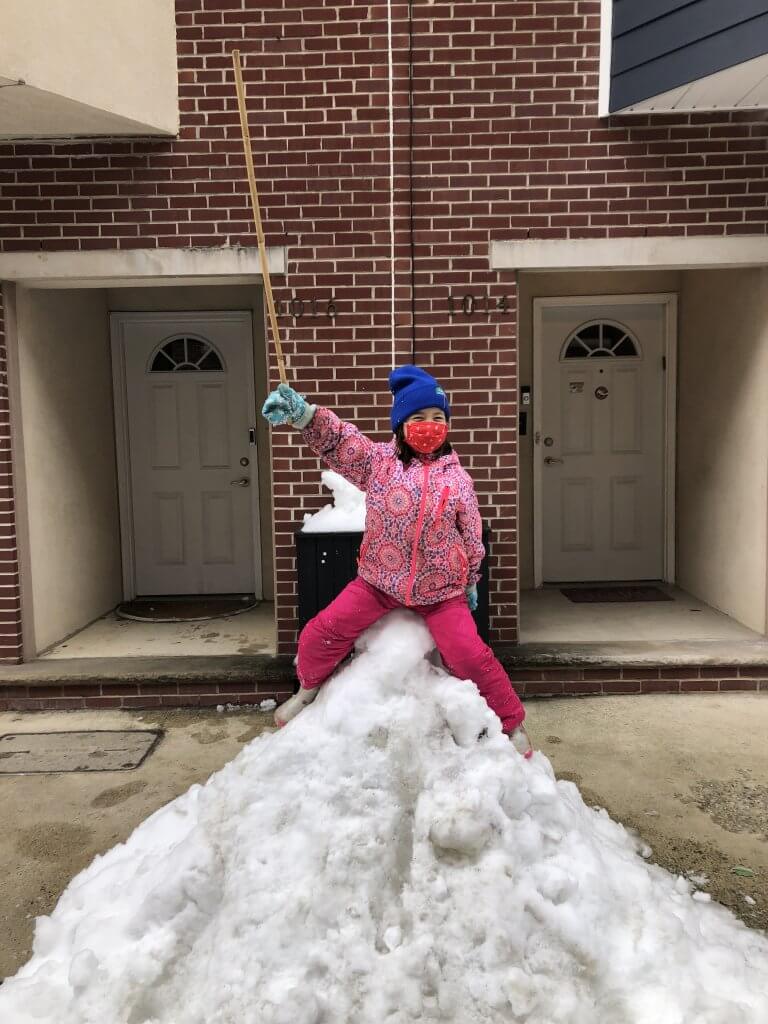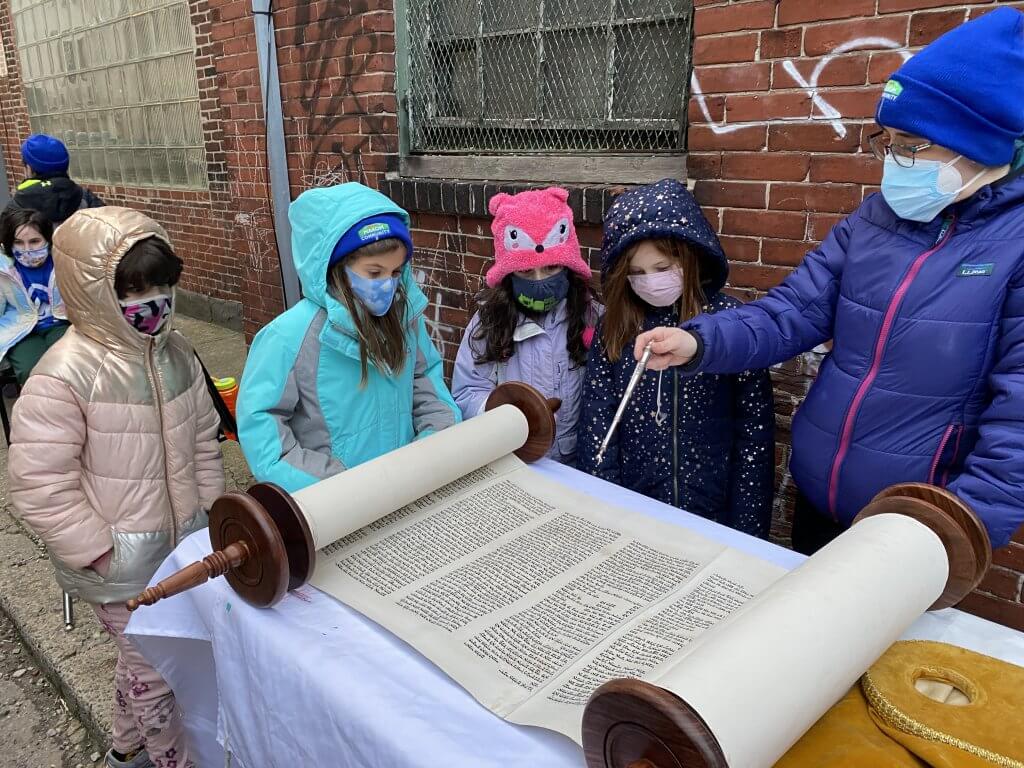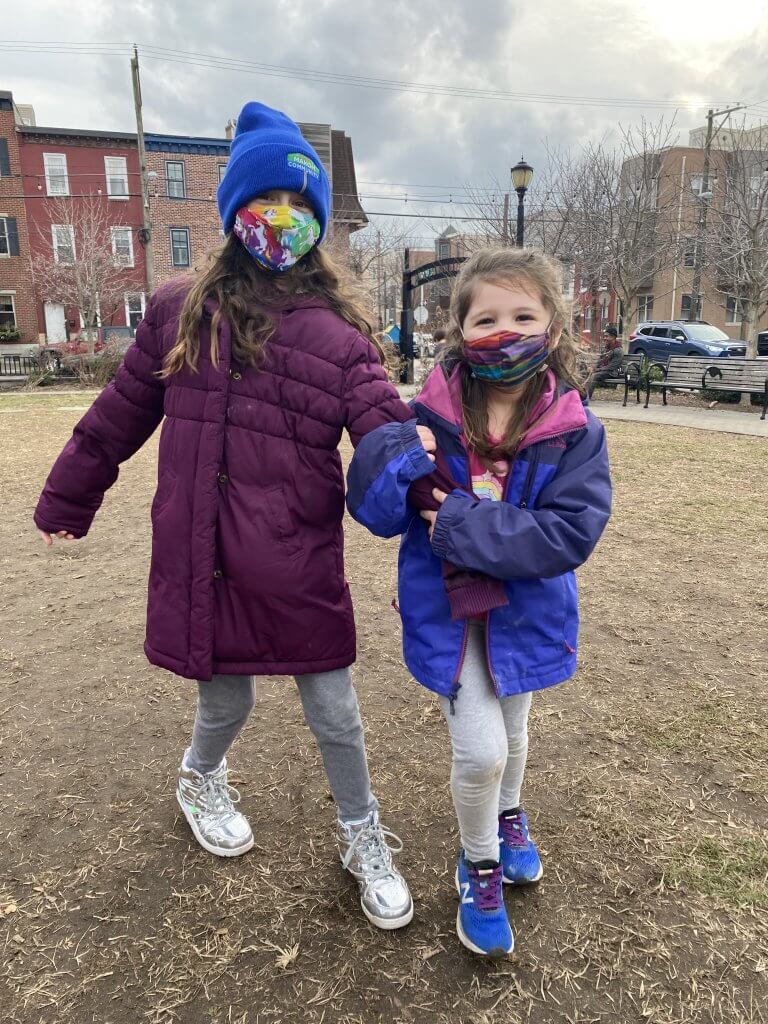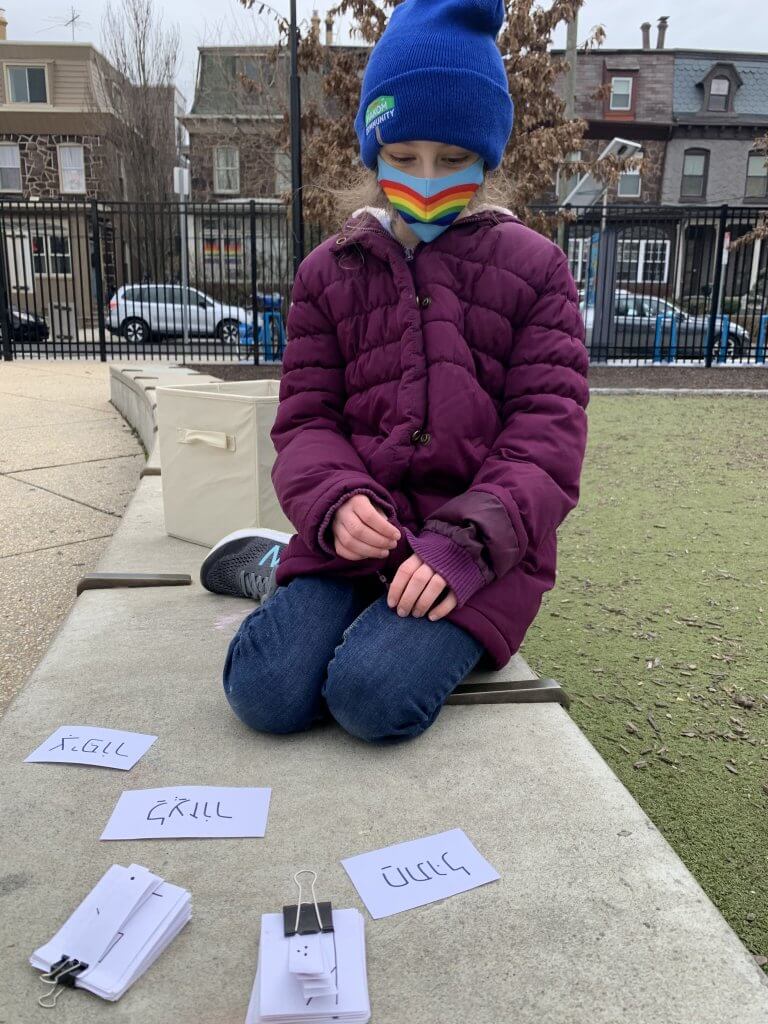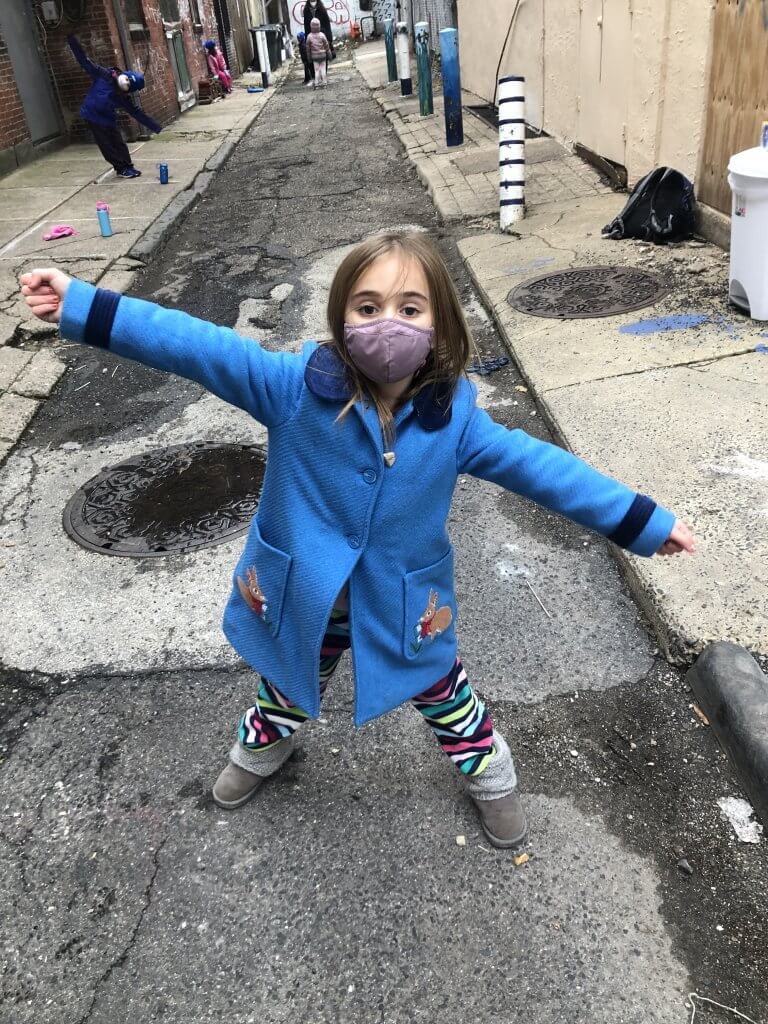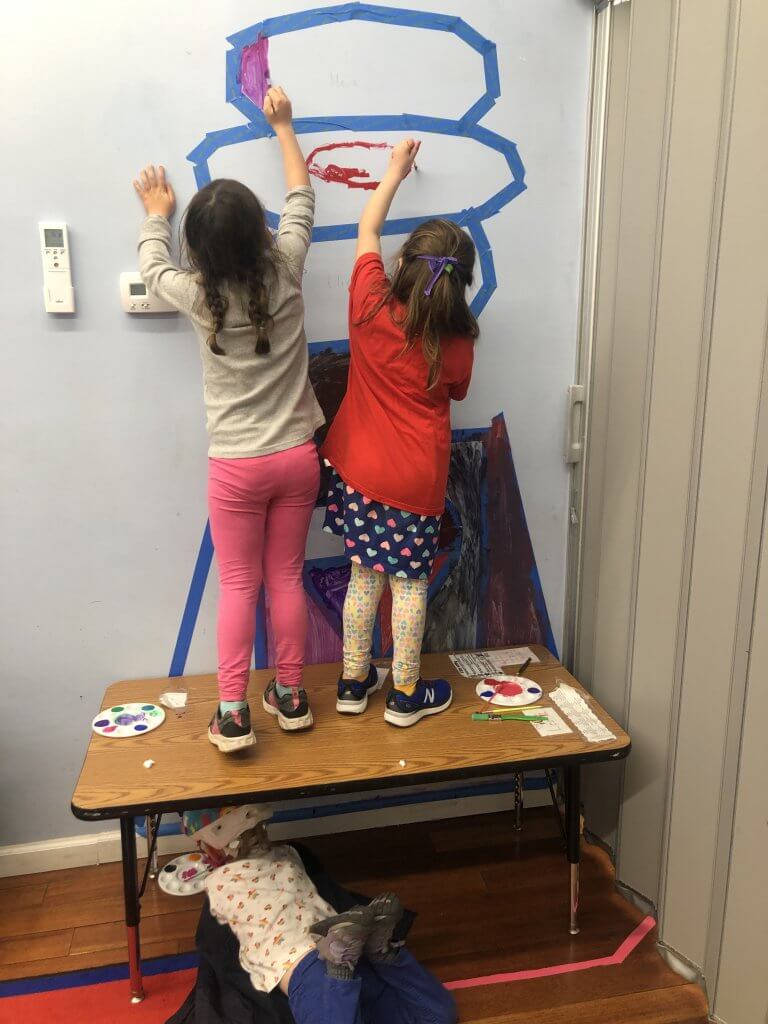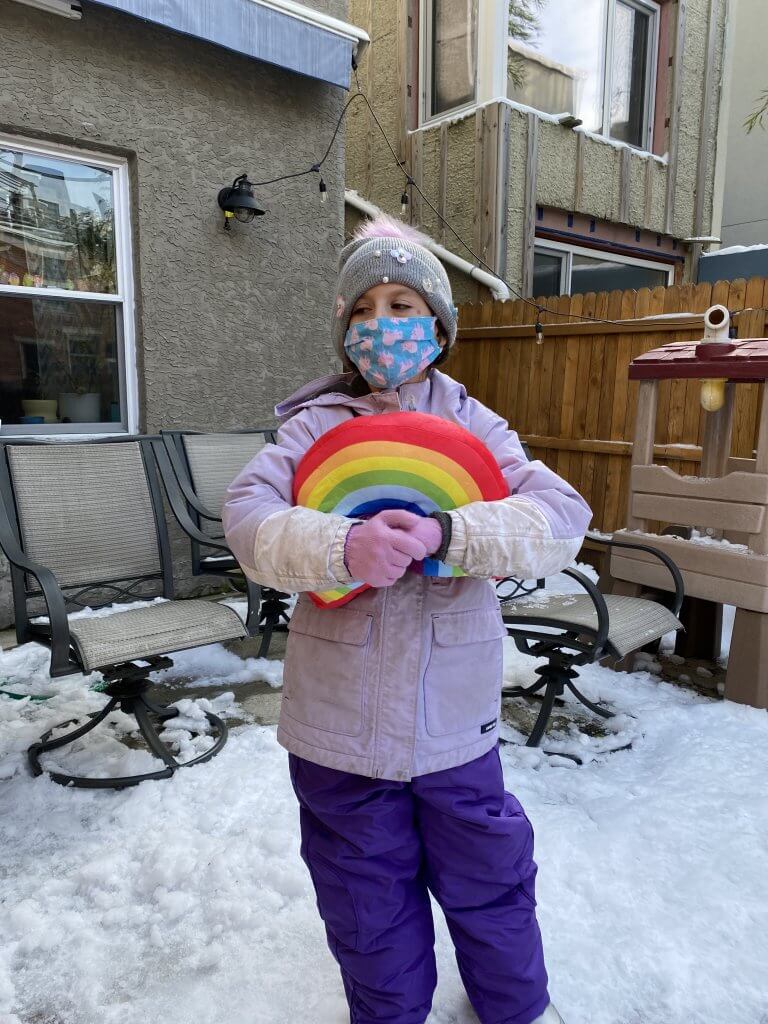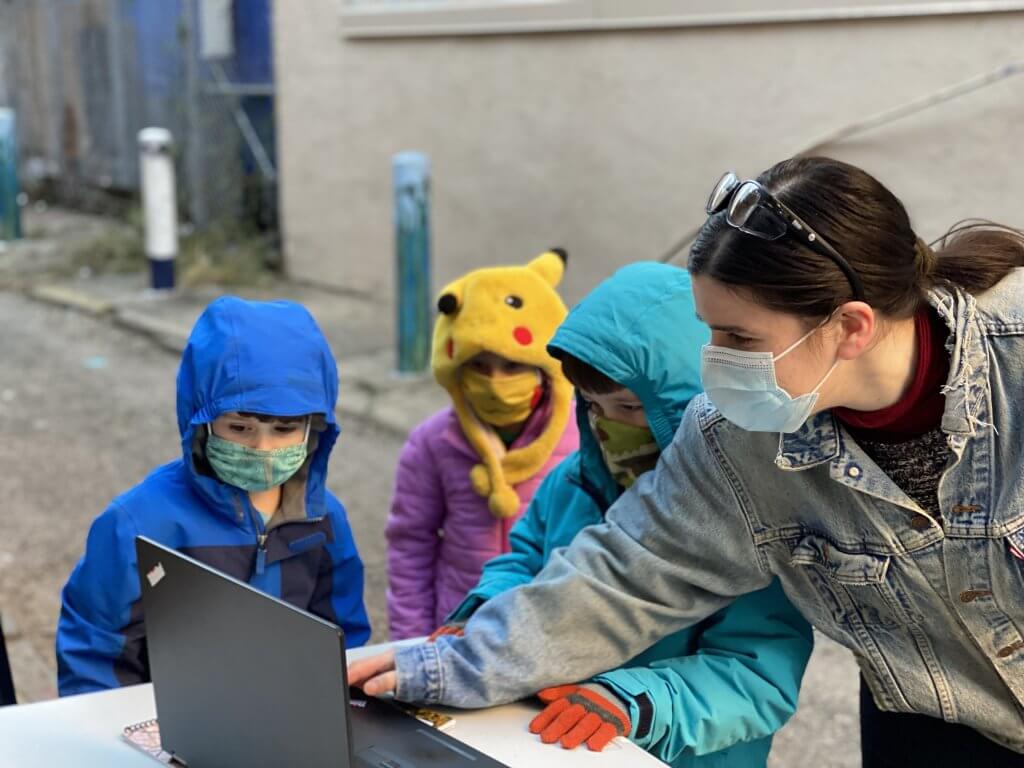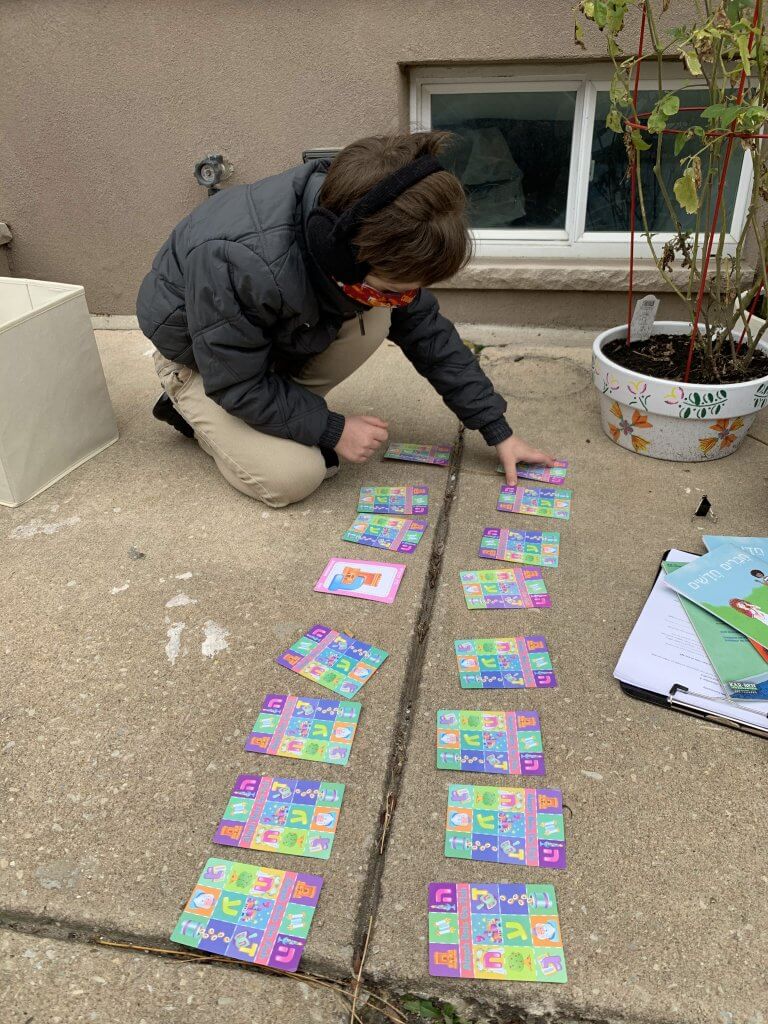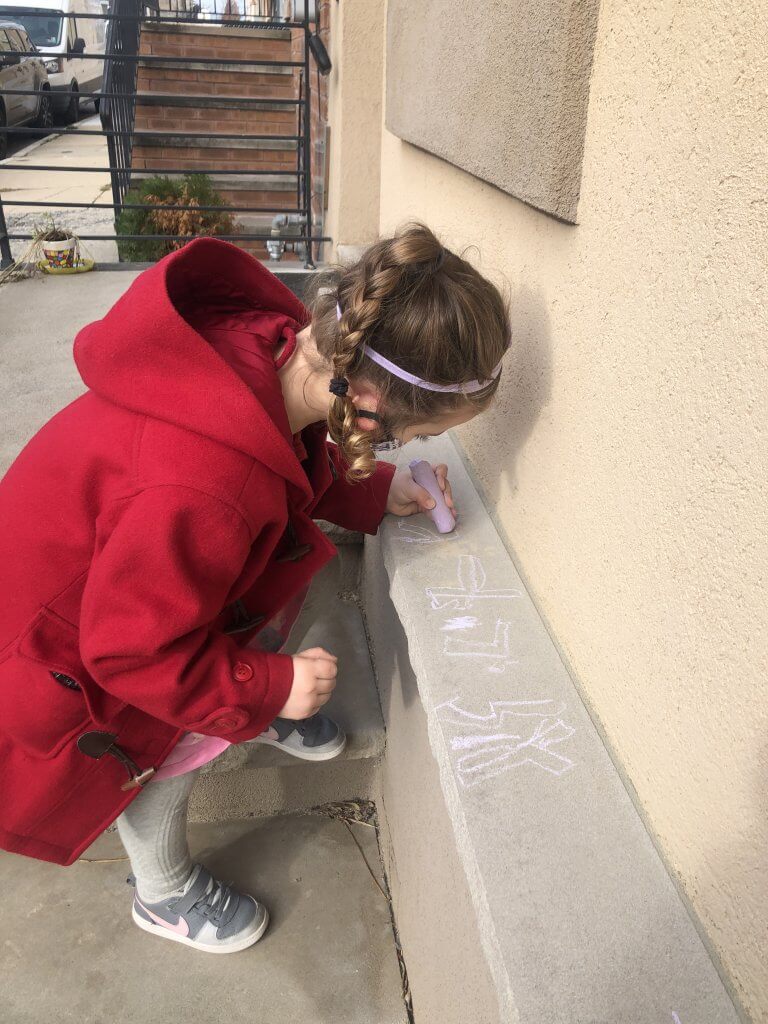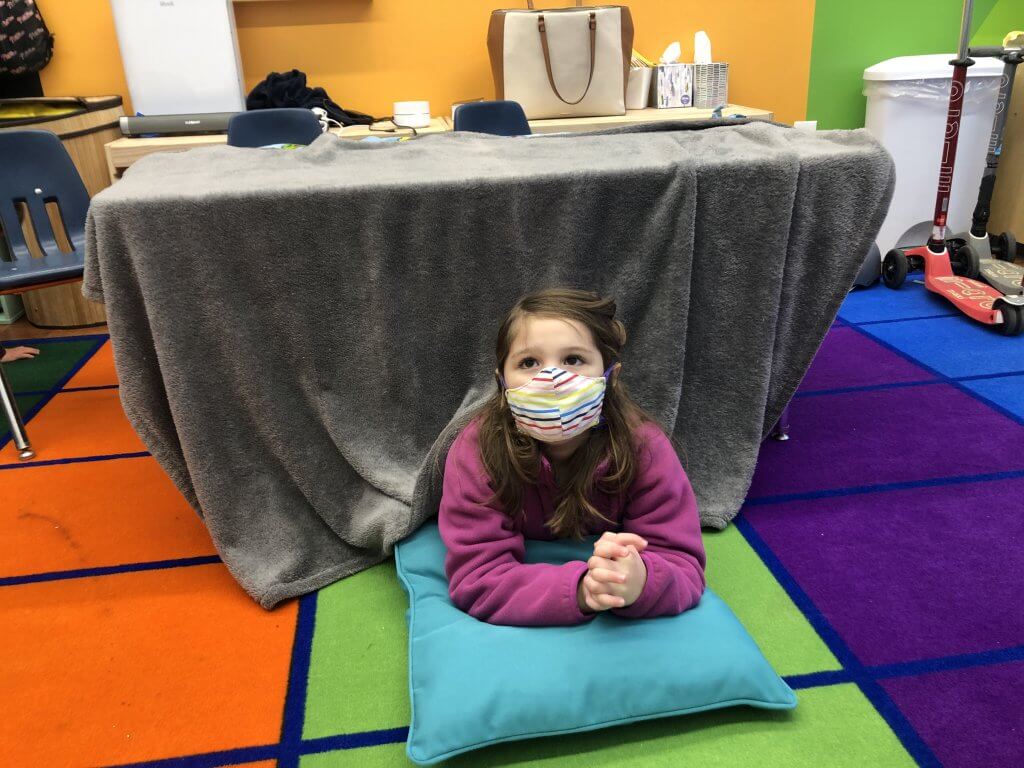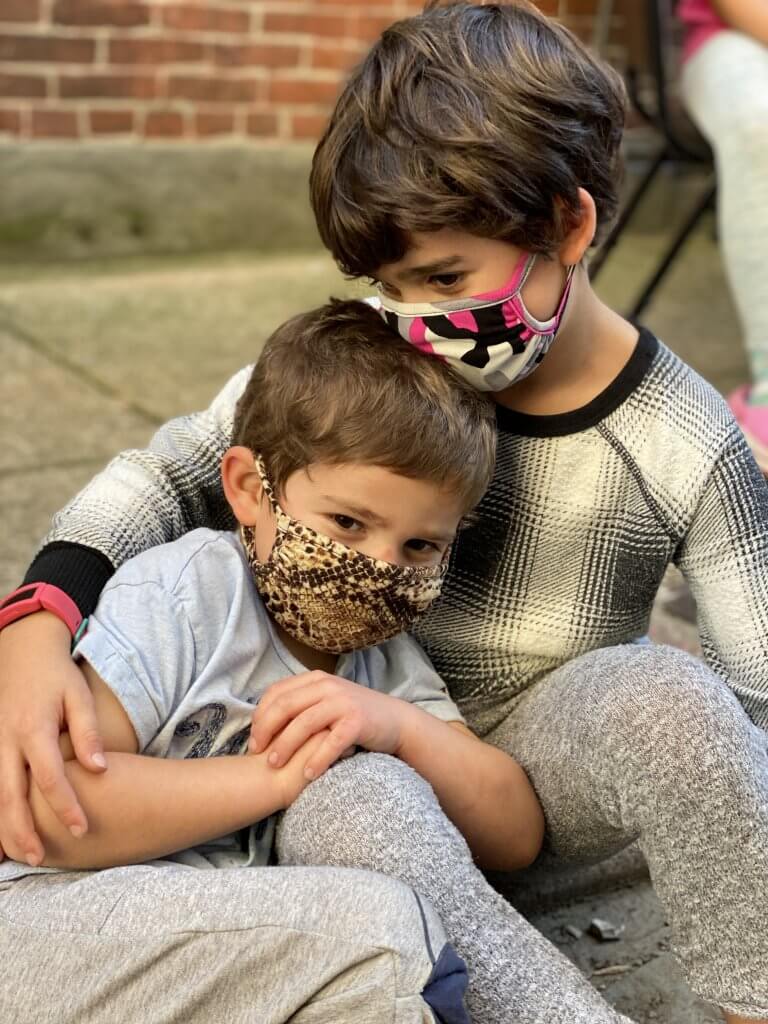This week we continued our unit three learning exploring the Exodus story! All week I watched students absorb and embody this story through building, play, art, puppetry, dress-up, and more. It was such a joy to observe students immersing themselves in this essential story of the Jewish people, a story they know well already and are eager to expand upon….
Tag: enrichment
 Relationships and Praiseworthy Action
Relationships and Praiseworthy Action
This week we reviewed our learning from unit two where we explored our inherent holiness. We revisited some of our favorite projects and conversations and continued work on some long-term projects including a community weaving, a lego wall, and personalized supports to live in the Pinat Shalom (peace corner.) Kiddos reiterated ways in which we can nurture other people. We…
 Remembering to Make Good Choices in the Pinat Shalom
Remembering to Make Good Choices in the Pinat Shalom
This week we explored how tallitot, tzitzit, and other ritual objects empower us and act as a reminder to make good choices. Throughout the week we wrapped ourselves in tallitot, tied knots, and wove together ideas about connection. As we dove into the topic of making good choices, we looked to our own space and considered what supports we rely…
 Ritual and Connection
Ritual and Connection
This week we studied the Shema. We considered what it means to be charged with the mitzvot (opportunity to connect) of Shema. We thought all about rituals and mantras that support us in our everyday lives and worked together to come up with ways to enhance our experience doing repetitive rituals. After coming up with a definition of mantra “something…
 A Two Way Promise
A Two Way Promise
It has been so exciting to watch our Makom South Philly kiddos paint our Brit Mural. A brit is a two-way promise between learners and instructors as well as between the learners and each other. Learners have taken ownership of this project coming up with a list of expectations that are as unique and caring as the kiddos themselves. In…
 Different Is Good
Different Is Good
This week we had the pleasure of being joined by Center City Makom educator Gaby Marantz. Upon meeting Gaby, one of our learners remarked, “Does everyone who works at Makom have dyed hair?” While brightly colored hair is certainly not a requirement for employment, we love that our team brings their full self to Makom with diverse backgrounds and perspectives….
 Magical Book Week: Oh the faces we show!
Magical Book Week: Oh the faces we show!
What a magical week it has been! When kiddos arrived at Makom on Monday some were feeling unsure about the unknown of a new environment and new people. Throughout the week I saw campers emerging from their shells. By the end of the week there was laughter, friendship, and so many beautiful memories. On our very first morning some friends…
 Our Holy Names
Our Holy Names
This week we considered a bit of text from the Amidah (a section of daily prayer.) “You are holy, Your Name is holy, and holy ones praise Your name every day…” When conceptualizing her connection to this text, one learner shared: “The earth is God’s museum.” Kiddos reflected on what these words mean through discussion, movement, and making. Together, we…
 Holy Souls In Dialogue
Holy Souls In Dialogue
This week we dug deep as we discussed what holiness means and how we can tap into it. We also began considering the concept of a soul which sparked a lot of amazing learning. During Schulchanot Avodah kiddos were playing, talking, creating, and problem-solving. Two students worked together in a conversational exchange to learn about how they each thought about…
 Special Talents and Holiness!
Special Talents and Holiness!
This week we embarked upon a discussion of what holiness means. Learners shared their ideas as we unpacked this big concept: Holiness is something special. It reminds me of when we say Holy Moly Guacamole! It’s something crazy or big. It has to do with God. I think of Jewish things, like holidays. Objects can be holy. It’s holy to…
 Chanukah on S. Juniper St.
Chanukah on S. Juniper St.
This week has been full of light and joy. We feel so blessed to have this beautiful space on S. Juniper St. to joyfully learn in, while we grow. As we gathered outside for snacktime learning this week, the excited energy was palpable. We noshed on graham crackers and apples while kiddos shared what they know about Chanukah. We use…
 Olam Haba: Creating The World We Want To See
Olam Haba: Creating The World We Want To See
What does it mean to create our collective future (olam habah)? This week when diving into good choices and personal responsibility we considered what it means to create our best future. We thought about what we want the future to look like, and how we could approach working toward that future. As we sat around the yard at Makom students…
 High Holidays and Beyond!
High Holidays and Beyond!
As we closed our learning about Rosh Hashanah last week, we began reflecting on ideas about Yom Kippur. Although September is full of short weeks, we are packing in all kinds of creative and engaging opportunities for joy and growth. During these two weeks we have been discussing community, neighbors, how we treat one another, how we understand and rectify…
Get Excited for August School’s Out Camp!
Makom Community has three, awesome, fun-filled weeks of August School’s Out camp planned for your kiddos in both Center City and South Philly! Kids ages 4-10 are invited to join us the weeks of August 9, 16, and 23 for week-long, full camp days (8:30am-5:30pm) complete with arts and crafts, cooking projects, afternoons at the playground or splash pad, singing,…
 Finding Strength in Tradition and Resilience in Memories
Finding Strength in Tradition and Resilience in Memories
Esther saves the day! Mordechai becomes the second most powerful person in the kingdom! The Jewish people get a new holiday to joyfully celebrate every year! Last week, we finally reached the end of Megillat Esther (The Book of Esther). We noticed that unlike most other stories we’ve learned about the Jewish people (ex: the leaving Egypt story, the Chanukah…
 Purim Power and How NOT to Be Resilient
Purim Power and How NOT to Be Resilient
When we last left our heroes, Mordechai had finally convinced Esther to risk her own life by approaching Achashverosh uninvited and asking him to save her people. But when Esther visits the king, she asks instead for him and Haman to join her for a feast. Huh? What’s with that? And at the feast, she asks them to come to…
 Solidarity Forever: How the Jewish people made Esther strong
Solidarity Forever: How the Jewish people made Esther strong
Last week, our story amped up the drama. We met the text’s leading antagonist, Haman (boooo!), and learned about his plan to get rid of all the Jews in Achashverosh’s kingdom. He drew lots to choose a random date to enact his plan, and ended up with the 13th of Adar (that’s this Friday!). Interestingly, this part of the story…
 New Unit, New You
New Unit, New You
We report to you on last week from the beginning of a brand new curriculum unit at Makom Community! To kick off this unit, we’ll unpack the story in Megillat Esther (the Book of Esther). We’ll notice the ways that challenging experiences that we and the characters in text face are temporary, but the strength we take from them impacts our…
 Aaaand That’s a Wrap: a Peaceful Conclusion to Unit 2
Aaaand That’s a Wrap: a Peaceful Conclusion to Unit 2
Can you believe we’re already halfway through this school year?! Wrapping up our second curriculum unit last week gave us ample opportunity to celebrate all the amazing learning, analyzing, and growing your kiddos have done. A particular big shout out and yasher koach (congratulations!) is due to our Nitzanim (3rd and 4th graders) upon completion of their second showcase. Stay…
 I See God in You
I See God in You
Feelings and Torah! We love this combination at Makom Community. Last week’s learning was full of both. Here are some of the things we discovered while exploring the scene of Yaakov and Eisav’s long-awaited reunification. Yaakov and Eisav reunite in an overwhelming moment. Yaakov, still consumed by guilt over stealing Eisav’s birthright and blessing, as well as fear of Eisav’s…
 Noticing Feelings in Conflict
Noticing Feelings in Conflict
So many feelings! So little time! Last week we spent a lot of time decoding characters’ feelings, through dramatic interpretation, visual aids, and empathy practice. Eisav returns from his hunt only to find out that Yaakov had just received the blessing meant for him. He is incredibly distressed, and vows to kill his brother Yaakov. At first, the Garinim (preK…
 Tricky Feelings and a Blessing for Peace
Tricky Feelings and a Blessing for Peace
Finally Yaakov has received his special brachah (blessing), but at what cost? We spent several days unpacking the situation around the giving of this brachah and then we analyzed the content of the brachah itself. We discovered there was lots of room for mixed feelings and mixed messages amid the trickery and tension. Rivkah had a plan to make sure…
 Commentaries and Questions on Conflict
Commentaries and Questions on Conflict
Commentary was the name of the game last week in our learning at Makom Community. Unsurprisingly, our inquisitive students have many of the same questions as some pretty big deal medieval rabbis. We unpacked the answers that some of those rabbis had to the questions and added our own insights. One story that we discussed was from 15th century Torah…
 New Year, Same Resolutions: Revisiting our Brit
New Year, Same Resolutions: Revisiting our Brit
Happy New Year! We’re so excited to be adventuring into 2021 with all of you. As we return from winter break, we want to remind ourselves about the britot (two-way promises) that we made back in November. Here’s a refresher on our britot, which are completely painted and waiting for us on our classroom walls at Makom Community. At Makom…
 Rivkah’s Trick: Is It a Mistake?
Rivkah’s Trick: Is It a Mistake?
Things are getting complicated on our journey to understanding conflict and peace through stories of Yitzchak, Rivkah, Yaakov, and Eisav. Favoritism and unequal love are fueling some increasingly morally questionable decisions on the part of some of the characters. Are their choices justified? Let’s find out. In our story from last week, Yitzchak is getting old and going blind. He…
 Big Feelings in the Birthright Trade
Big Feelings in the Birthright Trade
What’s a birthright? Who gets it? How does our tone and feelings affect our interactions and ability to manage conflict? We explored these questions and more last week as our adventures with Yaakov and Eisav continued. In this story (Genesis 25: 29-34), Yaakov is home cooking lentil stew and Eisav comes in famished from outside. He demands some of Yaakov’s…
 On Playing Favorites and Choosing Sides
On Playing Favorites and Choosing Sides
In our story last week, Rivkah’s difficult pregnancy ends with the birth of twins! Continuing from their prenatal conflict, the text’s descriptions of Rivkah’s sons focuses on their differences and incompatibilities. The first born, Eisav, is born covered in red hair. The second born, Yaakov, comes out holding onto Eisav’s heel. When they grow up, Eisav becomes a skilled hunter,…
 Helping Ourselves and Others through Conflict
Helping Ourselves and Others through Conflict
How do we navigate conflict peacefully and productively? Over the next few months, we’ll explore some of the resources available in Torah to help us answer this question. To start off our second curriculum unit of the school year, we jumped back in the Torah text timeline to Bereshit (Genesis) 25. There, we meet Yitzchak and Rivkah, who desperately want…
 Working for Tzedek with the Makom Community Brit
Working for Tzedek with the Makom Community Brit
At the end of our first unit of learning at Makom Community, we conclude with painting our brit (two-way promise) on the wall. Kiddos always have so much fun painting directly on the wall, but it’s also a good time to reflect on how we conduct ourselves while at Makom Community, and in the world as a whole. This year,…
 Fostering Connections in Our Virtual Promised Land
Fostering Connections in Our Virtual Promised Land
This past summer, as we rejoined each other in person and began reaching out to our community, we realized that quite a few of our families wanted to participate but were not ready to return in person. In response, we launched Makom at Home, a fully online version of our Jewish Enrichment program. Students from coast to coast gather virtually…

